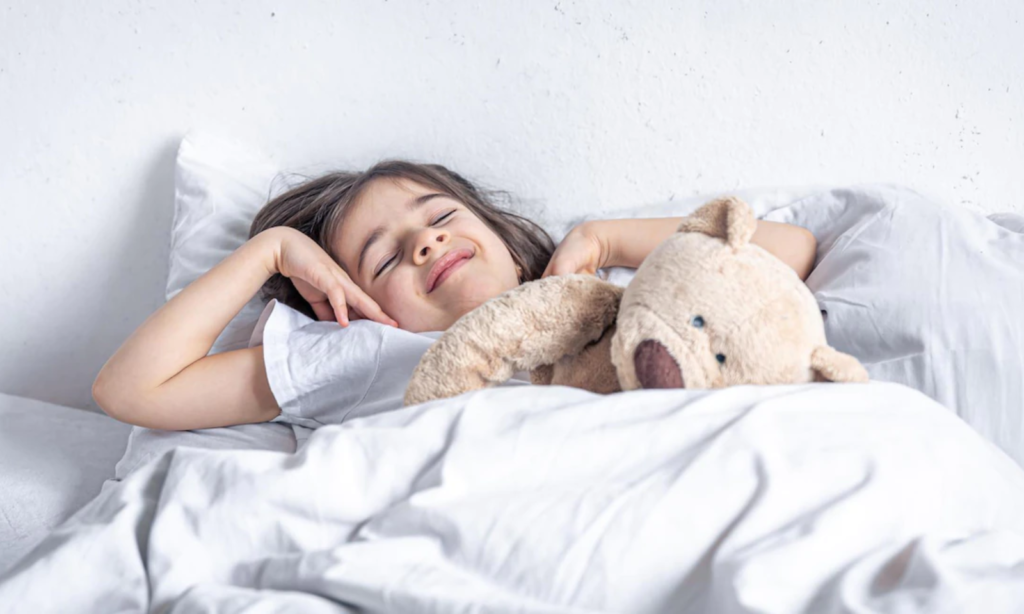Children need a good night’s sleep to learn and perform effectively in school. However, many parents need to realize that the quality of their child’s sleep is just as important as the quantity. To give your children the best possible chance at getting an excellent education, you must ensure they get quality sleep on a quality mattress and also know the Importance of Sleep.
The Importance of Sleep
Sleep plays a crucial role in learning. It has been demonstrated that a child’s capacity to learn and retain information is influenced by both the quantity and quality of sleep. According to many studies, children who don’t get enough sleep are more likely to struggle in school. Furthermore, studies have demonstrated that insufficient sleep can result in issues with attention, behavior, and even mental health.
While the importance of sleep is well-established, what needs to be clarified is how different types of mattresses can impact the quality of sleep. However, there is some evidence that certain livpure mattresses—such as memory foam mattresses or latex mattresses—can help improve the quality of sleep by providing better support and alignment for the spine. This, in turn, can help reduce pain and improve blood circulation.
How Well Are Kids And Teens Sleeping?
The amount of sleep that a person need varies with age. The Times of India advises children in elementary through high school to get 9 to 11 hours of sleep every night. Teenagers should sleep for eight to ten hours every night.
According to studies, numerous children are not getting the recommended amount of sleep. One-fourth of younger kids have trouble getting enough restful sleep and experience excessive daytime sleepiness.
How Does Sleep Affect Academic Performance?
Doctors agree that children and teenagers who don’t get enough sleep have trouble learning and paying attention. Even though there hasn’t been as much research on how sleep deprivation affects kids’ academic performance, what there is suggests that it can be detrimental in a few significant ways.
The effects of sleep deprivation on cognitive function are most visibly manifest in students’ general classroom performance. Lack of sleep has been associated with a variety of health problems, including but not limited to:
- Deterioration in sequentially – Sleep deprivation impairs one’s capacity to retain sequential instructions, which is necessary for performing complex tasks like conducting scientific experiments or learning an instrument.
- Decline Creativity – Some studies have suggested that insufficient sleep negatively affects creative thinking, which depends on the ability to draw connections between seemingly unrelated concepts.
- Lack of focus – Sleep deprivation hinders one’s capacity to concentrate, which is crucial to learning and academic success.
- Reduced speed – There is some evidence that not getting enough sleep might impair cognitive abilities like attention, reaction time, and speed of analysis.
- Disrupted recall – Memory encoding, the process through which information is stored and reinforced in long-term memory, occurs when we sleep. Inadequate sleep can hinder the production of new memories and make it more difficult to retrieve old ones.
Fix Sleep Deprivation in Children
Windup early
Nobody can fall asleep immediately after engaging in demanding mental or physical activity. Your child should start winding down between 8:00 and 8:30 p.m. to be prepared to fall asleep around 9:00 p.m.
Turn off the monitors
Displays’ blue light is known to stimulate the brain, making it harder to get to sleep. Particularly true for “tiny screens” held closer to the face, like those on phones and tablets. At least an hour before going to bed, turn them off. When your child next tries to persuade you that they need a phone alarm to wake up in the morning, give in and buy them an alarm clock.
Make bedrooms conducive to rest
Find every way you can to make their bedroom more comfortable. Soothe them to sleep with a good story. Play soft music and hug them goodnight, and set the mood for a restful night’s sleep. Turn out the lights and seal off the room to avoid any noise. Eliminate all potential interruptions and get a good mattress for children. Some children like to bigger space to sleep in. A livpure mattress king size or livpure queen size bed is the best choice to help with that.
Can A Mattress Improve Sleep?
The answer is yes. The bed you sleep in plays a major role. How do you expect your child to get a good education if they don’t sleep on a quality mattress?
General firm livpure mattresses, such as latex foam mattress or regal mattress, are suitable for most youngsters, but other mattresses are designed to address specific issues, such as livpure orthopaedic mattress. You can identify the source of your child’s sleep deprivation and choose a suitable mattress for them.
A good mattress will improve the quality of your child’s sleep and, consequently, academic performance. Importance of Sleep If you’re looking for a mattress for baby, make sure to find one that is comfortable and supportive. Look for a mattress with a firmness level that is appropriate for your child’s age and weight. Also, be sure to find a durable mattress that will last through your child’s teen years.
Conclusion
The bottom line is that sleep is essential for children’s academic success. If your child is not getting enough quality sleep, it can negatively affect their performance in school. Ensure that your child’s bedroom is conducive to restful livpure sleep.
So, if you want your child to get a good education, make sure they’re getting a good night’s sleep—on a livpure best mattress! Mattresses may not seem like an essential part of the equation, but they can make a big difference in your child’s ability to learn and succeed in school.
